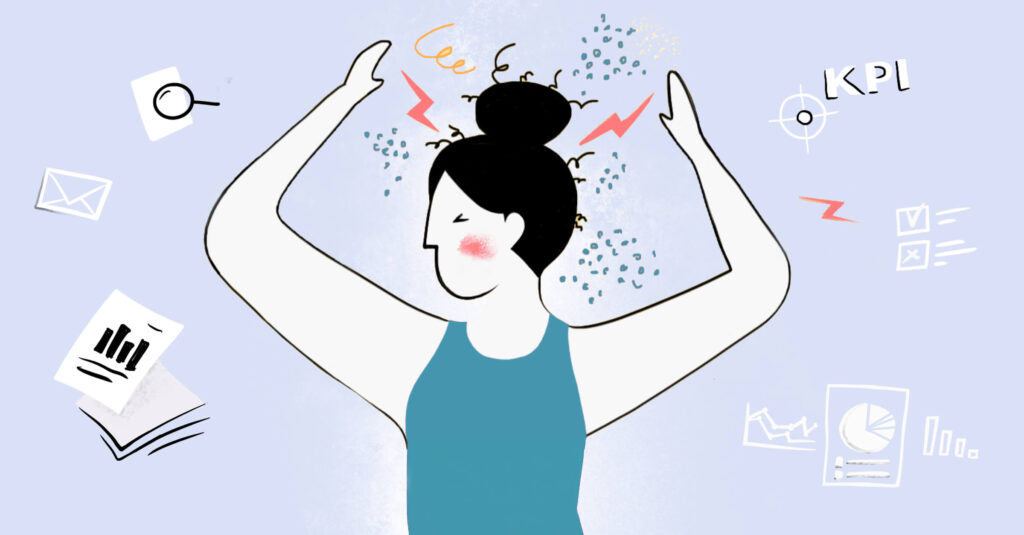
In today’s data-driven landscape, businesses face the challenge of managing multiple databases. Complex working environments are prone to inefficiencies, errors, and employee burnout. To address these issues, companies are turning to digital transformation strategies and the transformative power of generative AI. Businesses want to streamline operations, enhance efficiency, and create healthier, more productive work environments. Tovie AI has recently launched a whitepaper on employee burnout and GenAI-powered digital transformation. Here are the key takeaways to give you a better glimpse of what’s inside.
Managing multiple databases presents a range of challenges: from data silos to varied data quality to intricate integration processes. This results in operational inefficiencies and errors that impede decision-making. The complex nature of multi-database work environments poses risks, leading to duplicated efforts, delayed decisions, and increased error rates. Additionally, the cumulative effects can strain employees. The complexities of data handling, information overload, and the demands of navigating chaotic work settings may cause burnout.
Employee burnout is a state of chronic stress and exhaustion resulting from prolonged exposure to work-related pressures and demands. It can manifest in emotional fatigue, reduced productivity, and heightened job dissatisfaction, ultimately impacting employee well-being and organisational performance.
Employee burnout costs are significant, from decreased productivity and absenteeism to higher turnover rates and healthcare expenses. Burnout affects individual employees and has a ripple effect on team dynamics, company culture, and overall business outcomes.
Companies can take proactive steps to address and prevent employee burnout. They can provide resources for stress management and mental health support. Implementing clear communication channels, setting realistic goals, and recognising employee achievements are integral to creating a supportive work environment.
Digital transformation initiatives are crucial in minimising burnout in complex work environments by leveraging technology to streamline processes, automate tasks, and enhance collaboration. By implementing digital tools and solutions, companies can optimise workflows, reduce manual workloads, and create a conducive work environment that promotes employee well-being.
GenAI can lessen employees’ cognitive burdens, boost productivity, and lay the groundwork for a more agile and resilient organisation. This innovative technology is a transformative solution for addressing the challenges associated with complex multi-database work settings and combating employee burnout. By streamlining data integration, automating routine tasks, and enhancing data accuracy and consistency within diverse databases through advanced AI algorithms, generative AI enhances operational efficiency and decision-making while reducing cognitive strain on employees. This enables them to focus on strategic and creative tasks that propel business growth and foster innovation.
Implementation challenges and considerations
While the new tech has the potential to enhance employee well-being, organisations may encounter challenges in integration, data privacy, and upskilling employees. Companies must address these implementation challenges by investing in training programs, ensuring data security protocols, and fostering a culture of continuous learning and adaptation to maximise the benefits of Generative AI.
By implementing digital transformation strategies and leveraging the capabilities of generative AI, businesses can establish a cohesive work environment that emphasises employee well-being, enhances operational performance, and cultivates a culture of innovation and advancement.
Empower your organisation with the insights and tactics necessary to navigate the complexities of multi-database work settings and enhance employee well-being through the transformative influence of Generative AI.